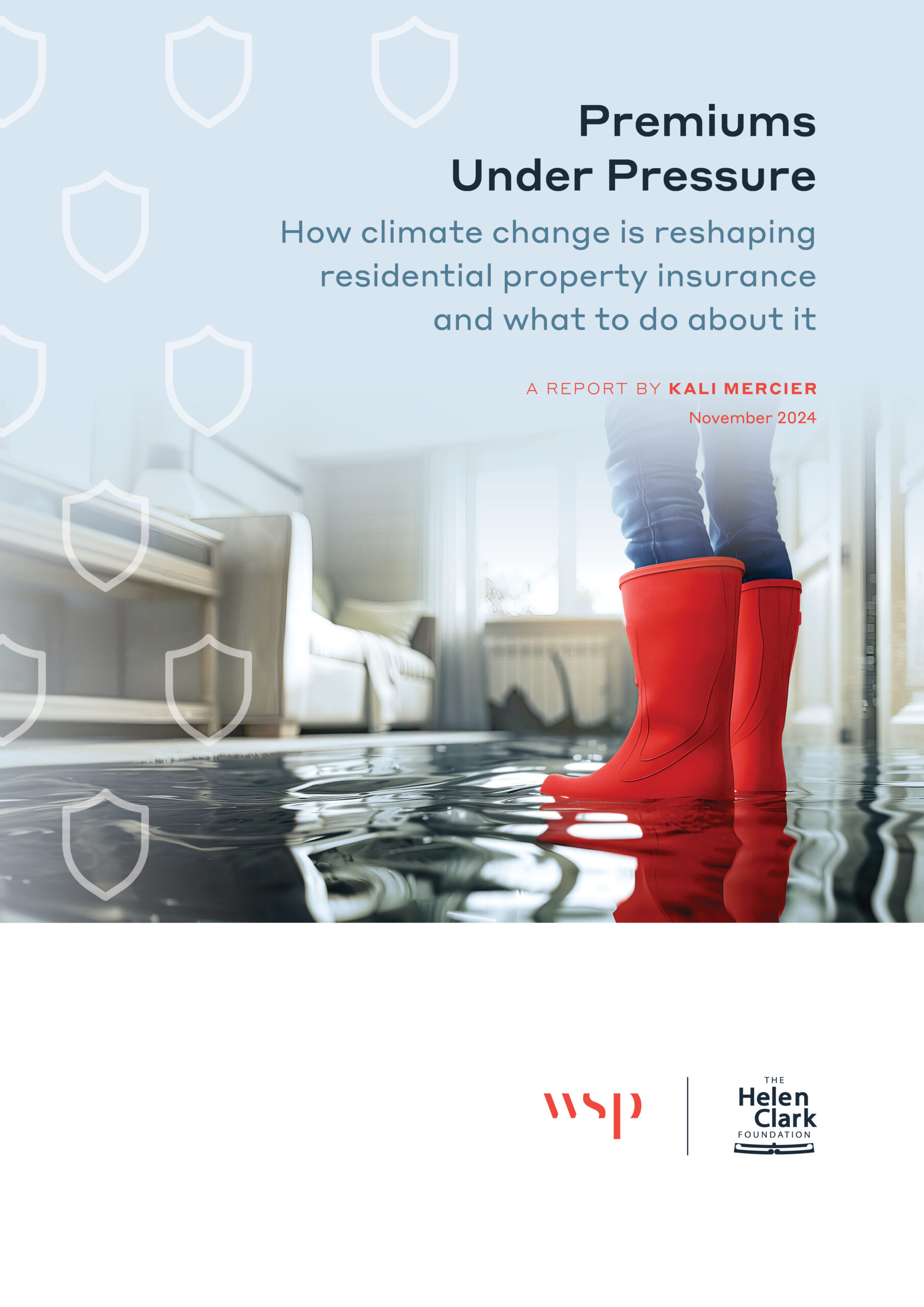The world faces unprecedented climate-related challenges over the coming decades and beyond. New Zealand can expect more severe floods, droughts and increasing coastal inundation due to sea-level rise, among other impacts.
Home insurance premiums in Aotearoa New Zealand have faced steep increases over the past few years. Premiums are expected to rise further over time as more insurers move to adopt ‘risk-based pricing’ for flood hazards and as the impacts of climate change increase, pushing up costs for insurance companies and their international underwriters. Without effective policy measures, these pressures will result in unaffordable premiums for some properties, leading households to reduce, or cancel, their insurance cover.
Additionally, insurance companies will over time withdraw cover in some locations as increasing levels of damage – especially from floods and coastal erosion – make selling cover in those locations unattractive or infeasible. This phenomenon is known as ‘insurance retreat’.
This report sets out early thinking on options for a thorny and pressing policy issue that has not yet been well developed in the literature: how to keep residential insurance accessible and affordable in Aotearoa New Zealand in the face of increasing climate-related challenges.
Aotearoa New Zealand must act now to maintain high levels of residential insurance and help protect the country from an uncertain future. Failing to do so will mean not just personal hardship for those who find themselves underinsured after a disaster – it could also have significant fiscal impacts for the government. High residential insurance penetration is crucial to maintaining economic and societal resilience and enabling individuals, communities, and the country as a whole to recover from climate-related disasters.
As an innovative and forward-looking country, Aotearoa New Zealand is well-placed to find solutions to create a robust, world-leading insurance ecosystem. Policy options should be considered in detail now, backed up by public debate, ideally with multi-party consensus. To be most effective, appropriate interventions must be designed to last, and be ready to implement well before protection gaps become widespread.
Our report A Shared Future touched on similar issues, looking at how we can engage communities in climate change adaptation and planning. You can read that report here.
You can register here for our webinar about this report to hear from experts on actionable solutions to the issue of insurance retreat.
You can watch report author Kali Mercier discussing the report on Q+A here.
Read more